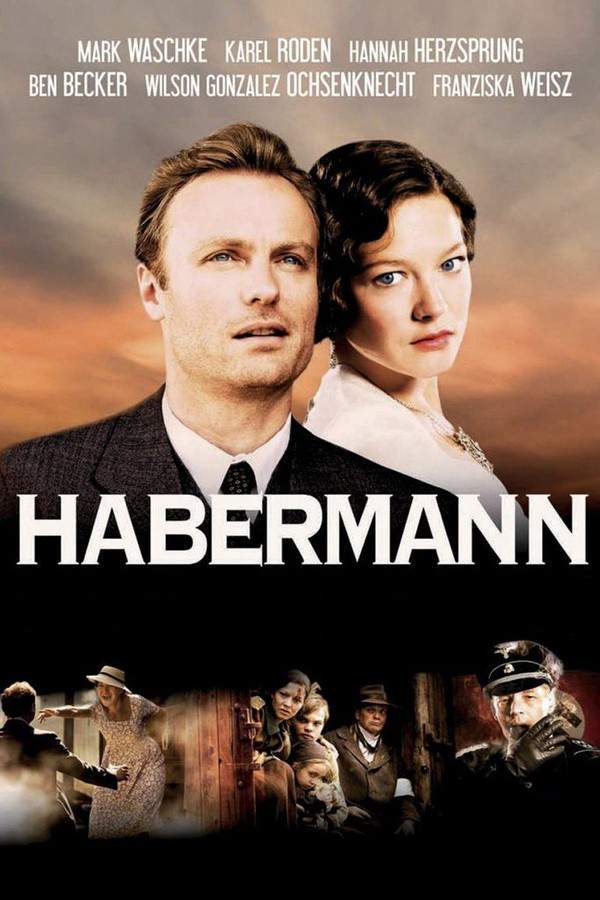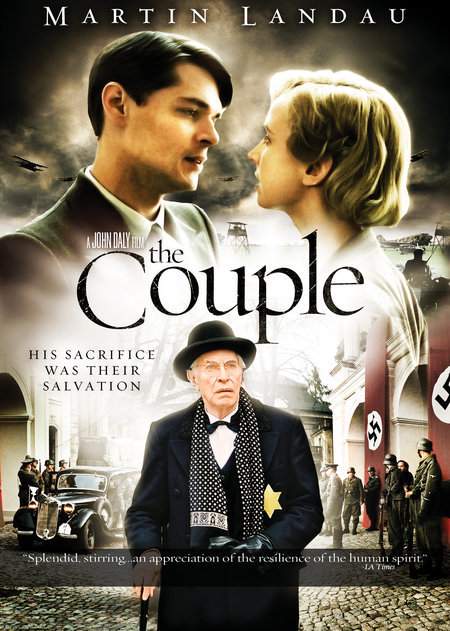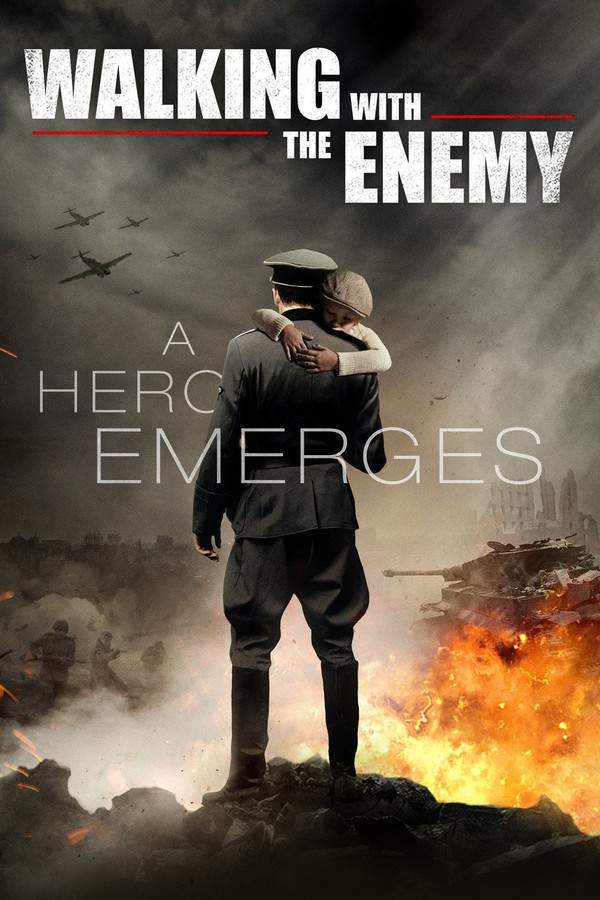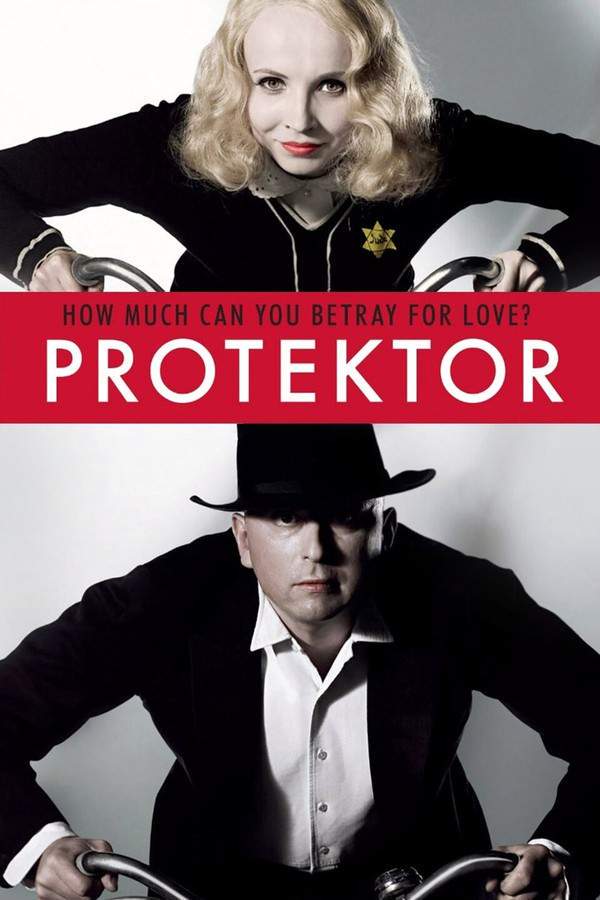Divided We Fall 2001
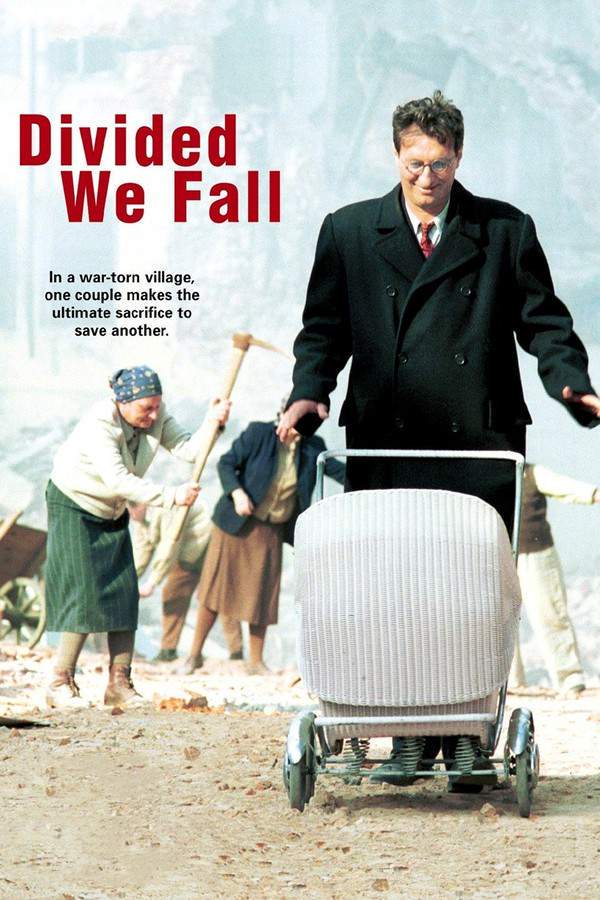
During the tense years leading up to war, a couple living in Nazi-occupied Czechoslovakia makes a courageous decision to protect a Jewish friend. Facing immense danger and uncertainty, they risk their own safety and freedom to shelter him from the escalating oppression. Their actions forge an unexpected connection as they navigate a world filled with peril and moral dilemmas.
Does Divided We Fall have end credit scenes?
No!
Divided We Fall does not have end credit scenes. You can leave when the credits roll.
Meet the Full Cast and Actors of Divided We Fall
Explore the complete cast of Divided We Fall, including both lead and supporting actors. Learn who plays each character, discover their past roles and achievements, and find out what makes this ensemble cast stand out in the world of film and television.
External Links and Streaming Options
Discover where to watch Divided We Fall online, including streaming platforms, rental options, and official sources. Compare reviews, ratings, and in-depth movie information across sites like IMDb, TMDb, Wikipedia or Rotten Tomatoes.
Ratings and Reviews for Divided We Fall
See how Divided We Fall is rated across major platforms like IMDb, Metacritic, and TMDb. Compare audience scores and critic reviews to understand where Divided We Fall stands among top-rated movies in its genre.

69
Metascore
tbd
User Score


90%
TOMATOMETER

90%
User Score

7.6 /10
IMDb Rating

72
%
User Score
Take the Ultimate Divided We Fall Movie Quiz
Challenge your knowledge of Divided We Fall with this fun and interactive movie quiz. Test yourself on key plot points, iconic characters, hidden details, and memorable moments to see how well you really know the film.
Divided We Fall Quiz: Test your knowledge on the intricate relationships and moral dilemmas in the film 'Divided We Fall'.
In what year does 'Divided We Fall' take place?
1935
1939
1945
1942
Show hint
Awards & Nominations for Divided We Fall
Discover all the awards and nominations received by Divided We Fall, from Oscars to film festival honors. Learn how Divided We Fall and its cast and crew have been recognized by critics and the industry alike.
73rd Academy Awards 2001
Foreign Language Film
Full Plot Summary and Ending Explained for Divided We Fall
Read the complete plot summary of Divided We Fall, including all major events, twists, and the full ending explained in detail. Explore key characters, themes, hidden meanings, and everything you need to understand the story from beginning to end.
The story begins in 1939 Czechoslovakia, where we meet Josef, a Czech who deeply despises the Nazis. He is married to Marie, and their world is complicated by Horst, a Czech-German Nazi collaborator who is married to a German woman. Horst frequently brings food and gifts to Josef and Marie, complicating their lives further. Josef’s moral stance is put to the test when he discovers David, a Jewish boy who has escaped from a concentration camp in occupied Poland. In a courageous move, Josef and Marie decide to hide David in their apartment, keeping his presence a secret from their unwelcome guest, Horst.
Marie finds herself torn; she often blames Josef for bringing David into their lives, yet she cannot ignore her growing compassion for the frightened boy confined to a closet. To protect themselves, Horst suggests Josef take a job evicting Czech Jews from their homes, a proposal that Josef ultimately accepts, earning him the distrust of their neighbor, Franta, who once tried to turn David into the Nazi authorities.
As the days pass, Marie becomes more attached to David, spending her time learning French with him. Unfortunately, Horst’s visits become more intolerable, culminating in an attempted assault on Marie. At the same time, Josef grapples with a personal crisis: he learns he is infertile, leading to a humiliating confrontation with Horst that spirals into a revenge-driven series of events. Horst then demands that they house his Nazi supervisor, a bureaucrat morally shattered after losing his son, but Marie initially refuses because she is pretending to be pregnant.
Faced with the threat of discovery, Josef proposes an outrageous solution: that David impregnate Marie to create a false “miracle” which would divert any suspicion. After much resistance, they go through with the scheme, leading to Marie’s pregnancy. As the tides of war turn, Horst’s demeanor shifts as well; once suspicious, he now attempts to shield Josef and Marie from the wrath of the German authorities.
As World War II draws to a close and the Germans are driven out, a chaotic situation breeds desperation: Marie goes into labor amidst city-wide turmoil. Josef embarks on a frantic search for a doctor, but the streets are overrun, and the only available doctor is in the grasp of the very people he once aided.
In a twist of fate, Josef encounters Franta, now part of the Czech Resistance, but his past as a collaborator haunts him. Desperate, Josef offers to present David as proof of his true sympathies in exchange for help finding a doctor. When it appears all hope is lost, they discover Horst, whose previous benevolence is recalled as they navigate the dangerous landscape. Horst steps into the role of doctor—much to Marie’s horror—and attempts to help deliver her child as partisans remain skeptical of Josef’s claims.
Ultimately, David arrives just in time, answering Josef’s desperate plea: > “Let us be human!” The climax unfolds in their home where, against all odds, Marie gives birth to a son. As the dust of chaos settles, David vouches for Horst’s changing heart, saving him from peril.
In the aftermath, we see Josef cradling the newborn as he strolls through the ravaged streets, haunted and yet filled with a flicker of hope, imagining David’s lost family and whispering thanks to a son he could never have, finally concluding with an aria from J.S. Bach’s St Matthew Passion, interweaving tragedy with a sliver of redemption.
Uncover the Details: Timeline, Characters, Themes, and Beyond!

Coming soon on iOS and Android
The Plot Explained Mobile App
From blockbusters to hidden gems — dive into movie stories anytime, anywhere. Save your favorites, discover plots faster, and never miss a twist again.
Sign up to be the first to know when we launch. Your email stays private — always.
Watch Trailers, Clips & Behind-the-Scenes for Divided We Fall
Watch official trailers, exclusive clips, cast interviews, and behind-the-scenes footage from Divided We Fall. Dive deeper into the making of the film, its standout moments, and key production insights.
Divided We Fall Themes and Keywords
Discover the central themes, ideas, and keywords that define the movie’s story, tone, and message. Analyze the film’s deeper meanings, genre influences, and recurring concepts.
Divided We Fall Other Names and Titles
Explore the various alternative titles, translations, and other names used for Divided We Fall across different regions and languages. Understand how the film is marketed and recognized worldwide.
Similar Movies To Divided We Fall You Should Know About
Browse a curated list of movies similar in genre, tone, characters, or story structure. Discover new titles like the one you're watching, perfect for fans of related plots, vibes, or cinematic styles.
Quick Links: Summary, Cast, Ratings, More

What's After the Movie?
Not sure whether to stay after the credits? Find out!
Explore Our Movie Platform
New Movie Releases (2025)
Famous Movie Actors
Top Film Production Studios
Movie Plot Summaries & Endings
Major Movie Awards & Winners
Best Concert Films & Music Documentaries
Movie Collections and Curated Lists
© 2025 What's After the Movie. All rights reserved.













